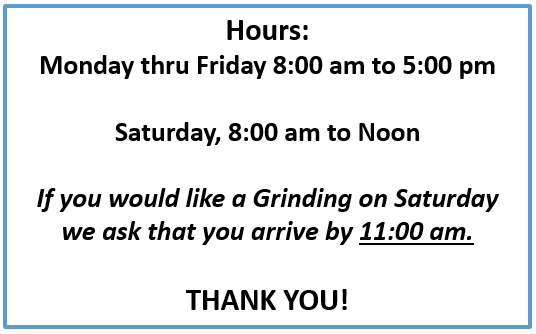|
|||||
Musk Defends Work, Hazy on Future 05/01 06:06 WASHINGTON (AP) -- Elon Musk, preparing to step back from his work leading the Department of Government Efficiency, had a request of the reporters gathered at the White House to interview him: Before he would answer any questions, he wanted someone to tell him a joke. The tech billionaire's request in the Roosevelt Room on Wednesday underscored the surreal and idiosyncratic presence of the world's richest man at the highest echelons of American power. Over the past few months, his work of downsizing the workforce has sent shocks through the federal government and drawn intense pushback, including protests of his electric vehicle company, Tesla. Musing about his and DOGE's incongruous role in the U.S. government, he said, "It is funny that we've got DOGE." "Doesn't the absurdity of that seem, like, like, are we in a simulation here or what's going on? But, like, it was a meme coin at one point," he said, laughing. "How did we get here?" Musk, clad in all black but missing the two hats he had worn at Wednesday's earlier Cabinet meeting, defended DOGE's work as he prepares to scale back his government role and spend more time at his businesses. But he gave hazy answers about the work he'd been doing and DOGE's future, and he seemed taken aback by the intense backlash he'd encountered. "Being attacked relentlessly is not super fun," he said. "Seeing cars burning is not fun," he added, referring to the instances of Tesla cars being smashed or set on fire. "In the grand scheme of things, I think we've been effective. Not as effective as I'd like. I think we could be more effective," Musk said. "But we've made progress." DOGE's large-scale slashings have been met with dozens of lawsuits. DOGE's attempts to access sensitive government information, including Social Security data, has similarly met resistance in court. And Democrats this week unveiled an online tracker tallying the federal funds approved by Congress that DOGE has blocked, setting up a constitutional struggle between two branches of government. Musk wouldn't offer examples of anything he'd do differently, though DOGE is nowhere near its original savings goal and has overstated its progress. DOGE had sought to cut spending by $1 trillion. Musk estimates he's cut $160 billion so far and acknowledged it would be hard to get anywhere close to $1 trillion. "It's sort of, how much pain is the Cabinet and the Congress willing to take?" Musk said. "It can be done, but it requires dealing with a lot of complaints." Musk didn't detail any of those complaints and said he has a good relationship with President Donald Trump's Cabinet. But when asked about clashes with certain members, particularly Secretary of State Marco Rubio, Musk said, "at times, there will be some disagreements with the Cabinet." He defended DOGE's attempts to access Americans' personal data, dismissing concerns about a potential "surveillance state" by quipping, "Don't we already have a surveillance state?" He said DOGE needs to access the systems in its hunt for fraud, and said, "There has to be some way to reconcile the improper payments." He said DOGE has referred cases of suspected fraud to the Justice Department, though he offered few details, including how many referrals were made. Antonio Gracias, a Musk investor working for DOGE, pointed to the indictment last week of an Iraqi man living in New York on charges he illegally voted in the 2020 election. U.S. prosecutors said DOGE assisted in the investigation. Musk acknowledged there were some instances in which they had to restore the jobs of government workers who, in his words, were "accidently let go," like "some people that were doing important regulatory work or taking care of national parks." When asked if he's found any areas where he'd recommended efficiencies beyond cuts, Musk veered into the nation's military strategy and said he has repeatedly recommended to Defense Secretary Pete Hegseth that he should be spending more money on hypersonic missiles and long-range drones instead of on crewed systems. Musk said DOGE is also working on improving connectivity for the nation's air traffic control system and reviewing plans to improve its software, but DOGE's primary goal is "trying to stop wasteful and fraudulent spending." But on other points, he was vague. Who will lead DOGE when he leaves? "DOGE is a way of life," he said. "Like Buddhism." Will he retain the title of senior adviser to the president? "I guess." Will DOGE wrap up its work by July 2026, as originally stated? "If the president wants us to stick to that date, we'll stick to that date." How many of the roughly 100 DOGE employees will stay on the job while he winds down? "Some will stay on. Some will not. So it's up to them. This is basically a volunteer organization." Is DOGE winding down? "No, I think it will gain momentum." Musk struck up a friendship with Trump during the 2024 campaign and spent nearly $300 million on the election -- the bulk of which went toward helping the Republican reclaim the White House. He has since become a constant presence with Trump for much of the first 100 days of the administration, regularly traveling with the president to his home in Florida on the weekends. Musk said Wednesday that he was working on DOGE seven days a week during the first months of the administration, at times sleeping in the Lincoln Bedroom at Trump's invitation. He declined to say just how many times he had slept at the White House but said the president had implored him to try the caramel ice cream from the kitchen. "Don't tell RFK," Musk joked, referring to Trump's Health Secretary Robert F. Kennedy Jr. Musk described it as an "intense period" during which he was trying to understand and map out the federal government. "It's a startup, effectively. A new administration is like a startup," he said. But he said he is now scaling back his work on DOGE, spending one to two days a week on it, and he plans to be in Washington less. "Now we're getting more of a rhythm so the amount of time that's necessary for me to spend here is much less," he said. He also pointed to the limitation on his status as a special government employee, which means he can only work 130 days in a 365-day time period. He said he will keep his "tiny" office on the second floor of the West Wing that he said has "a view of nothing" -- a feature, he then remarked, that keeps him safe. "It's harder to shoot me," he said. "There's not a good line of sight." |
|||||











